“He Was Lost, and Is Found”
Luke 15; 17
LDS manual: here
Purpose
To show how Christianity demeans people who believe differently as “lost”, and how it demeans its own members as “unprofitable”.
Reading
For this lesson, Jesus has a few parables about how to treat those who are “lost”.
Right off the bat, I have a problem. As an ex-Mormon and ex-Christian, I don’t think of myself as lost, and I find it insulting that Christians learn to portray me that way. I could think of Christians as “lost” — what else am I to call someone who ignores and denies the good in this life because they’re busy working for the next — but I don’t really think that. I think we’re all doing the best we can with the knowledge we have. Isn’t that a more respectful way of working through our differences?
Anyway, what advice does Jesus give on how to treat the “lost”? According to these parables:
- Parable of the lost coin
- Parable of the lost sheep
- Parable of the prodigal son
we’re supposed to be happy for them… when they come back to church. But that’s about it. Until they do, Jesus doesn’t have too many ideas. Could this be why Mormons are usually so bad at relating to former members?
Main ideas for this lesson
Lost sheep
Let’s start with the Parable of the Lost Sheep.
Luke 15:4 What man of you, having an hundred sheep, if he lose one of them, doth not leave the ninety and nine in the wilderness, and go after that which is lost, until he find it?15:5 And when he hath found it, he layeth it on his shoulders, rejoicing.
15:6 And when he cometh home, he calleth together his friends and neighbours, saying unto them, Rejoice with me; for I have found my sheep which was lost.
15:7 I say unto you, that likewise joy shall be in heaven over one sinner that repenteth, more than over ninety and nine just persons, which need no repentance.
Ask: Why would members esteem one person who comes back over ninety-nine who never leave in the first place?
Answer: When someone leaves, it places members in an awkward situation. They either have to think that the person was wrong to leave, or perhaps — gasp — acknowledge that they had a point. But if that person comes back, the conflict is resolved. Of course that person was wrong to leave — by coming back, they’ve admitted it themsleves! It must be tremendously validating when someone returns.
The LDS lesson manual continues this theme.
• In what ways might a person be “lost”? What is our responsibility toward those who are lost? (See Luke 15:4–5, 8; Alma 31:34–35.)
Possible answer: Someone might be lost when they masturbate to porn, and our responsibility is to rat them out to the bishop! That’s according to the LDS video “Wounded on the Battlefield”, here hilariously sent up by Dusty. (Language warning, of course.)
Ask: What do we call a religion in which members monitor and report each other for trivial infractions?
Children
This next part concerns child abuse. It’s not something I’ve been through, but many people have, and worse, the abuse has happened in a religious setting. I’m going to try to be as sensitive as I can about this, but please be aware if this is a triggering issue for you, and I’d appreciate seeing your thoughts in comments.
Jesus speaks of offenses against children, saying that they’re inevitable. He’s only an omnipotent being — what can you do?
Luke 17:1 Then said he unto the disciples, It is impossible but that offences will come: but woe unto him, through whom they come!
17:2 It were better for him that a millstone were hanged about his neck, and he cast into the sea, than that he should offend one of these little ones.
Nice try, Jesus, but these are just words, not deeds.
Ask: If you were an all-powerful being, and you saw that this was happening to a child, what would you do?
Possible answers: Drop the offender with a non-suspicious heart attack, cause amnesia, change the offender’s mind like God did to Pharaoh.
Ask: What does God do instead?
Answer: Sits and watches, and threatens the offender with punishment later.
Tracie Harris from the Atheist Experience expressed it rather tersely:
When I bring this up to believers, their answer usually revolves around agency. It’s regrettable that this happens, says the believer, but God refuses to abridge the agency of the offender.
My question then becomes: What about the child’s agency? What about their agency not to be abused? Why is the offender’s agency the only one’s that gets respected here?
If this isn’t good evidence that no god exists, then it’s definitely good evidence that this god isn’t worth worshipping.
While I’m on this topic, could I put a word in about bishop’s interviews. LDS bishops — generally men from the community with no training in counselling — routinely interview adolescents in closed-door sessions, in which the young people are quizzed about their sexual behaviour, including masturbation. This needs to end.
We could also argue that religion itself is a form of child abuse. Taking the mind of a child, and diverting it toward supernaturalism is a terrible path that can take years to undo. That’s not to equate sexual abuse and spiritual or intellectual abuse — given the choice, I’d take the spiritual / intellectual abuse I got, instead of the sexual abuse I didn’t get. But it’s worth pointing out that there are different forms of abuse, and even the non-sexual kinds can be damaging.
Unprofitable servants
So it appears that Jesus has no trouble disparaging people who believe differently as “lost”. But he also doesn’t have very much encouragement for those who do believe.
Luke 17:7 But which of you, having a servant plowing or feeding cattle, will say unto him by and by, when he is come from the field, Go and sit down to meat?
17:8 And will not rather say unto him, Make ready wherewith I may sup, and gird thyself, and serve me, till I have eaten and drunken; and afterward thou shalt eat and drink?
17:9 Doth he thank that servant because he did the things that were commanded him? I trow not.
17:10 So likewise ye, when ye shall have done all those things which are commanded you, say, We are unprofitable servants: we have done that which was our duty to do.
In other words, don’t think you’re good just because you did what you were commanded. You’re still unprofitable.
This idea has a function. After all, we want people in church to feel good, but not too good. That why we hear so much about avoiding ‘pride’. So Latter-day Saints are hearing this in church this week, and thinking, yep, I sure am unworthy.
Keep them down. That’s how you keep them coming back. Treat ’em mean, keep ’em keen. This is classic abuser behaviour.
I’d like to offer some good news to my Christian friends. You don’t merit the abuse that Jesus and your religion dish out. You’re better than this.
Additional lesson ideas
The kingdom of God is within you
This scripture was left out of the lesson:
Luke 17:20 And when he was demanded of the Pharisees, when the kingdom of God should come, he answered them and said, The kingdom of God cometh not with observation:
17:21 Neither shall they say, Lo here! or, lo there! for, behold, the kingdom of God is within you.
This scripture seems to imply that one can find spiritual answers inside oneself. That’s very dangerous to a hierarchical top-down model of spirituality, which is why Bruce McConkie fought it so hard. Watch as he turns it into an affirmation of the church system.
“One of the heresies which prevails in a large part of modern Christendom is the concept that Jesus did not organize a Church or set up a formal kingdom through which salvation might be offered to men. This poorly translated verse is one of those used to support the erroneous concept that the kingdom of God is wholly spiritual; that it is made up of those who confess Jesus with their lips, regardless of what church affiliation they may have; that the kingdom of God is within every person in the sense that all have the potential of attaining the highest spiritual goals; and that baptism, the laying on of hands, celestial marriage, and other ordinances and laws are not essential to the attainment of salvation.
“It is true that men have the inherent capacity to gain salvation in the celestial world; in a sense this power is within them; and so it might be said that the kingdom of God is within a person, if it is understood that such expression means that a person can gain that eternal world by obedience to the laws and ordinances of the gospel. But it is also true that Jesus did organize his Church and did give the keys of such kingdom to legal administrators on earth. (Matt. 16:13–19.)
“Even the marginal reading in the King James Version changes the language here involved to read, ‘The kingdom of God is in the midst of you,’ meaning ‘The Church is now organized in the midst of your society.’ The Prophet’s rendering of Jesus’ thought, as such is recorded in the Inspired Version, is of course the best of all. Its essential meaning is: ‘The Church and kingdom has already been organized; it is here; it has come unto you; now enter the kingdom, obey its laws and be saved.’” (McConkie, DNTC, 1:540.)
Oh, Bruce. Is there anything you can’t turn into a reification of your authority?
Old Testament stories and the end of the world
Rather threateningly, Jesus refers to the Flood and Lot’s wife as though they were real events — thus reaffirming that he still intends to kill a lot of people at his return.
Luke 17:26 And as it was in the days of Noe, so shall it be also in the days of the Son of man.
17:27 They did eat, they drank, they married wives, they were given in marriage, until the day that Noe entered into the ark, and the flood came, and destroyed them all.
17:28 Likewise also as it was in the days of Lot; they did eat, they drank, they bought, they sold, they planted, they builded;
17:29 But the same day that Lot went out of Sodom it rained fire and brimstone from heaven, and destroyed them all.
17:30 Even thus shall it be in the day when the Son of man is revealed.
17:31 In that day, he which shall be upon the housetop, and his stuff in the house, let him not come down to take it away: and he that is in the field, let him likewise not return back.
17:32 Remember Lot’s wife.
Rapture
And that leads us to one of the first scriptures that will eventually be wound into a doctrine known as the Rapture.
Luke 17:34 I tell you, in that night there shall be two men in one bed; the one shall be taken, and the other shall be left.
17:35 Two women shall be grinding together; the one shall be taken, and the other left.
17:36 Two men shall be in the field; the one shall be taken, and the other left.
Two men in a bed? Two women grinding? Thunderf00t once had the opportunity to interview two members of the Westboro Baptist Church, and when the interview inevitably went south, he threw this in as a last chance to offend them.
I’m posting this video, not because I’m a fan of Thunderf00t, because I found it amusing and relevant to the scripture. I actually find his anti-feminism off-putting and misguided. But here’s the clip. The relevant part starts at 15:52.
Well, that interview went down the tubes, so now let’s have a closing hymn. As so often is the case, this one’s from Morrissey, and it’s “Lost”. The relevant lyric: “Everybody’s lost. But they’re pretending they’re not.”
See you next week.



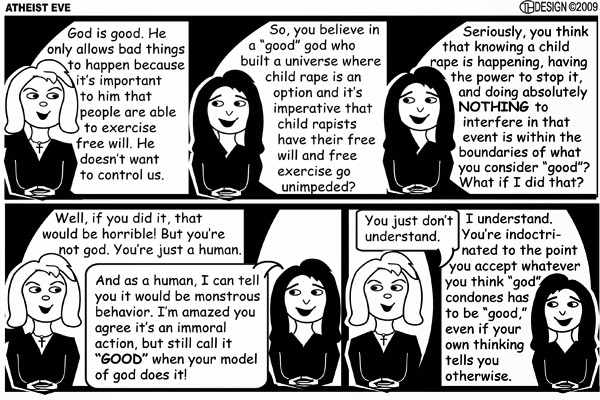
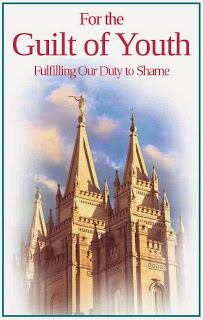

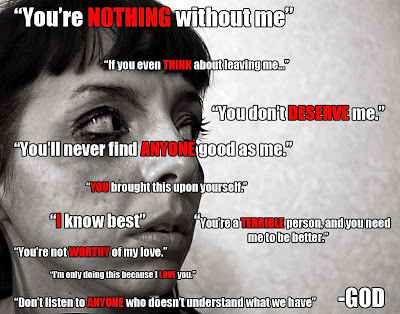


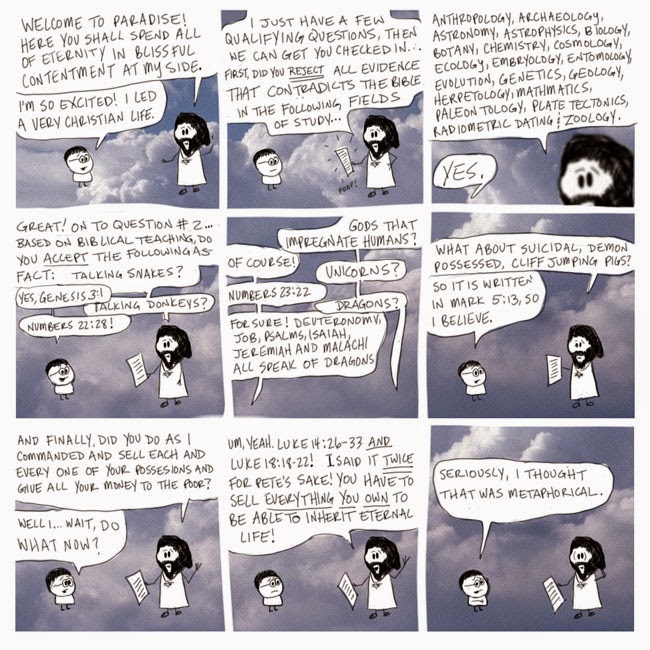
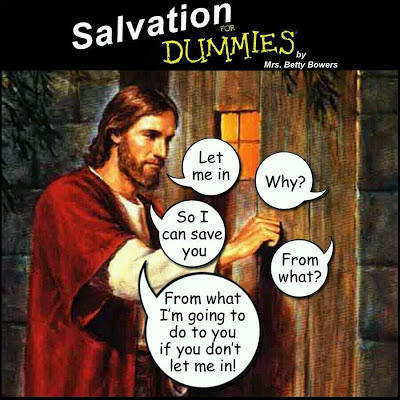




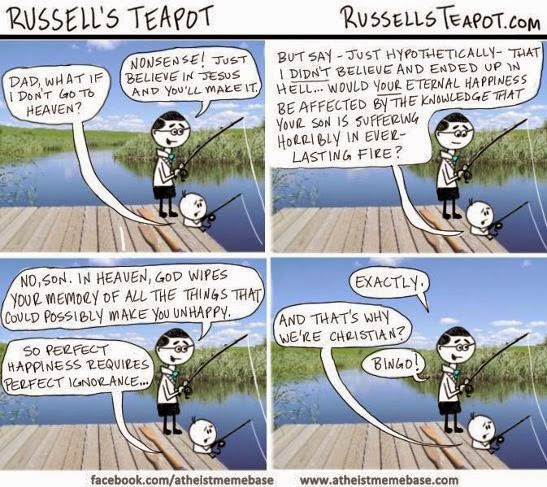

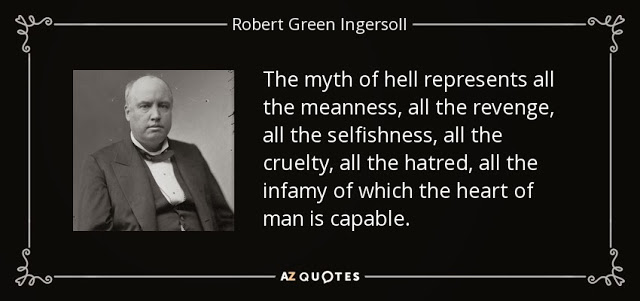






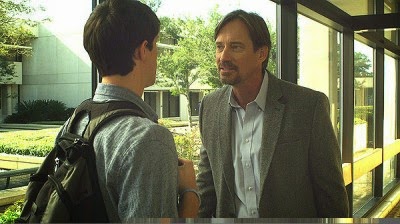


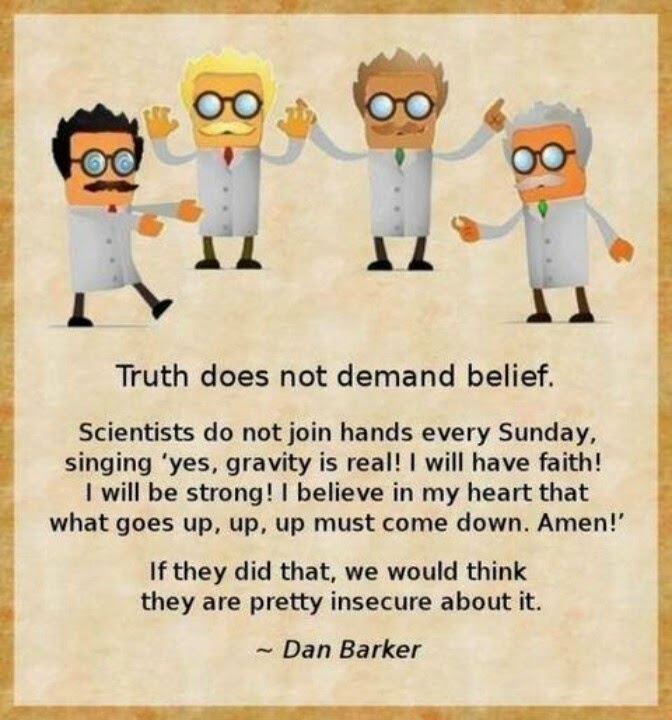

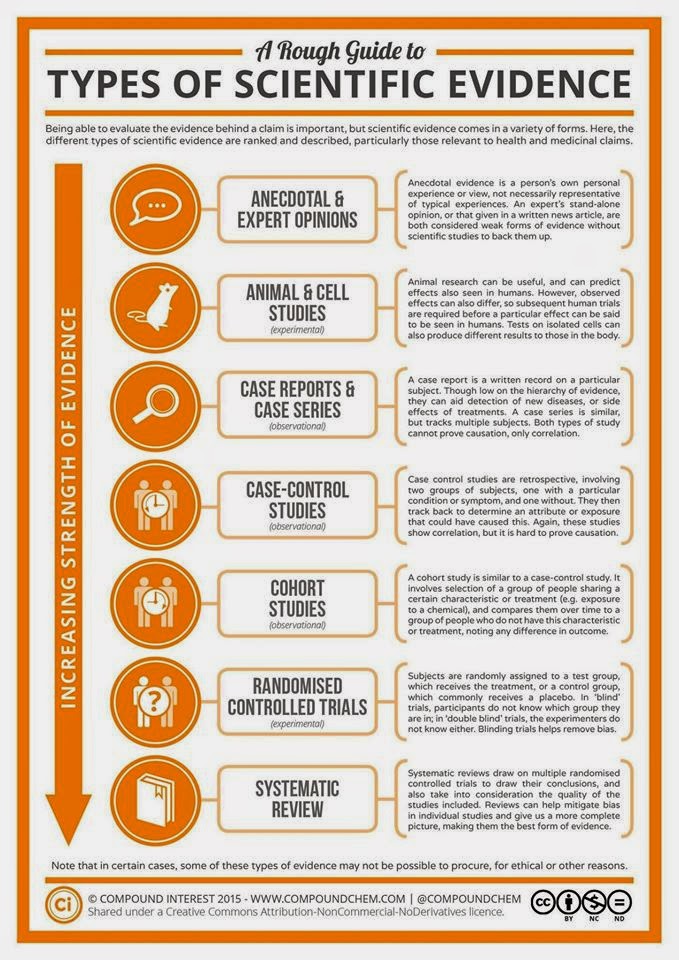
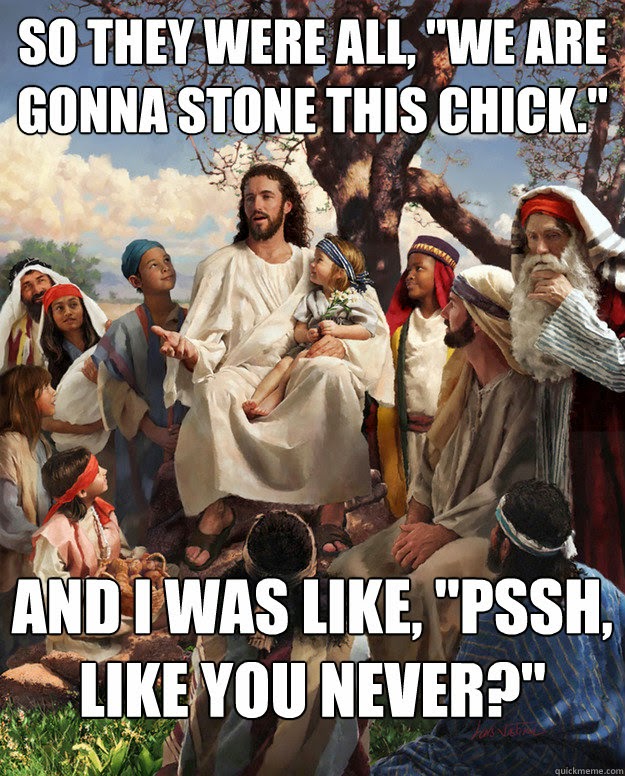
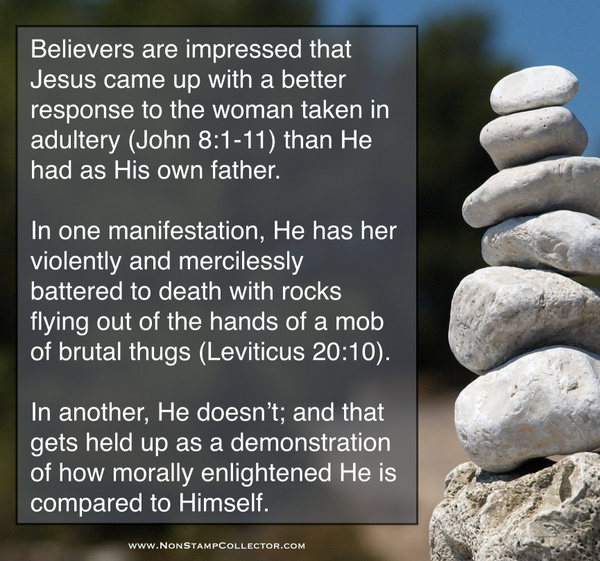








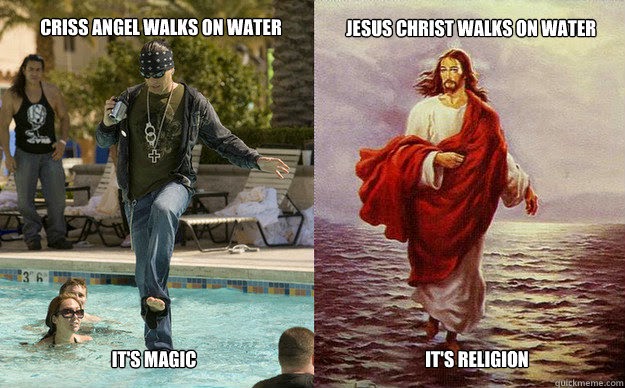



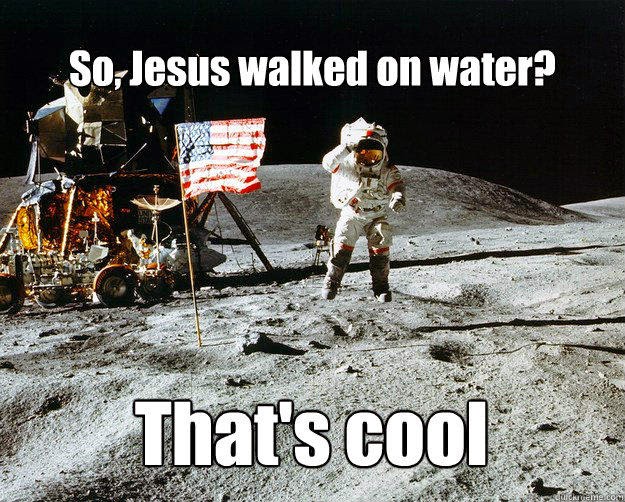
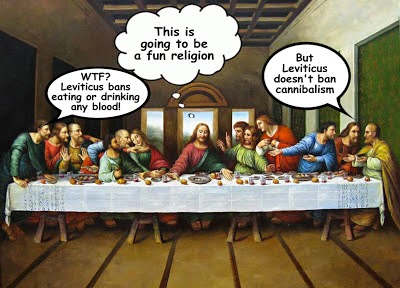
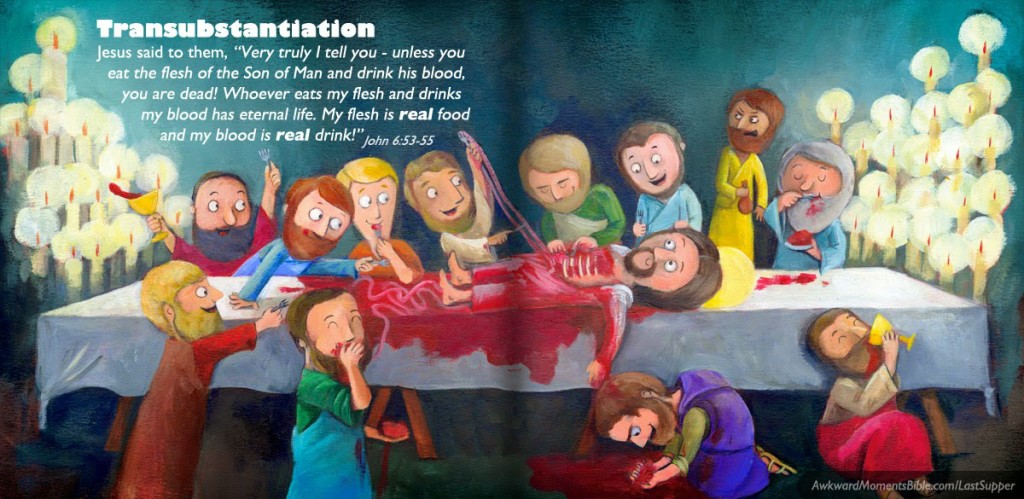



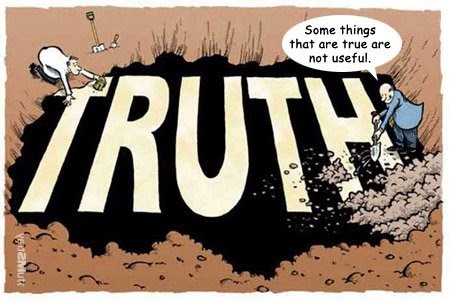



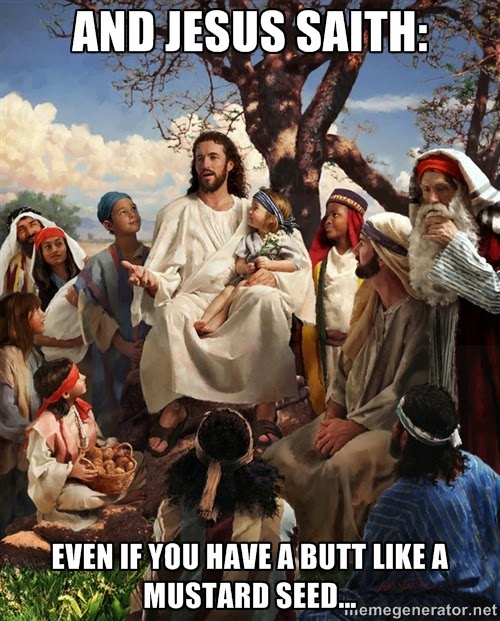
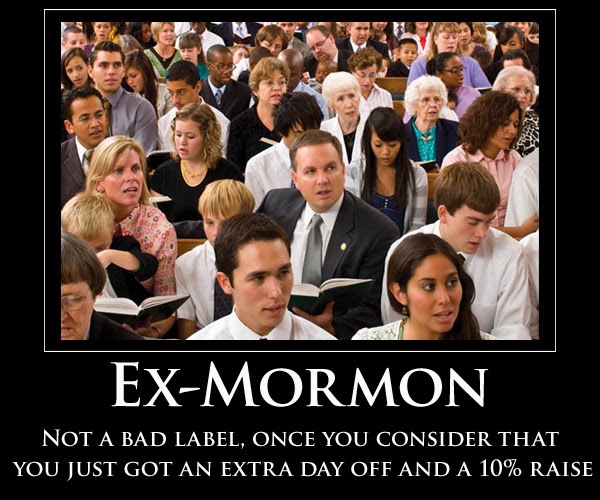





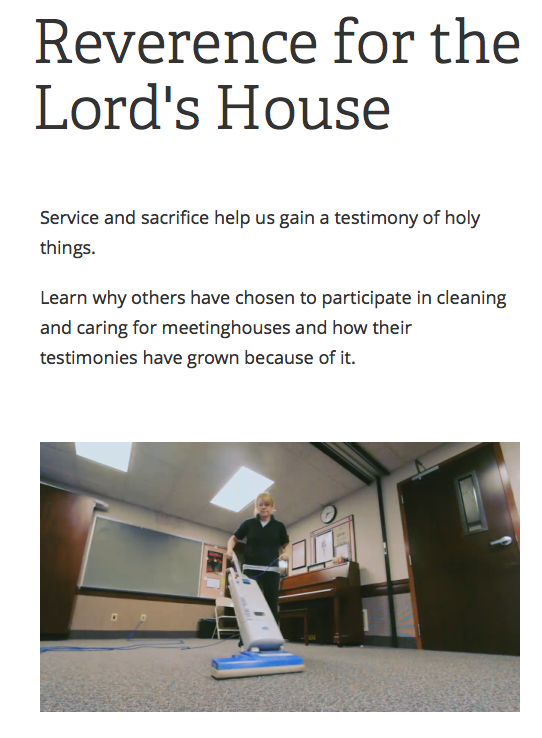



Recent Comments